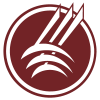Diesel Technology: Field Maintenance Option BS
What is Diesel Technology: Field Maintenance?
The Diesel Technology: Field Maintenance program at MSU-Northern prepares you for challenging off-site environments where flexibility and versatility are essential. This program blends core diesel technology training with specialized welding and fabrication skills, equipping graduates to handle complex repairs in remote or on-location settings.
With a focus on real-world applications, this program ensures you are ready to meet the demands of industries like construction, mining, and agriculture where on-location service and field maintenance are crucial.
Why Choose the Diesel Technology: Field Maintenance Program?
If you want to take your diesel repair skills beyond the shop and into the field, this program is for you. You'll gain hands-on experience through cooperative learning, industry-standard welding courses, and advanced diesel repair training. With mentorship from industry-expert faculty, you'll develop problem-solving skills necessary for dynamic roles requiring travel and on-site service work.
Graduates from this program are highly employable, particularly for positions requiring field-based diesel service and mobile repair expertise.
While the broader Diesel Technology program focuses on shop-based diesel repair, the Field Maintenance option prepares students for versatile, off-site repair roles.
This program integrates welding and fabrication training with traditional diesel coursework, making it ideal for those interested in mobile repair units, construction, agriculture, and other industries requiring on-location diesel maintenance. The additional skillset in fabrication and welding makes graduates uniquely qualified for field-based roles that demand technical repair and problem-solving abilities.
- Specialized training in welding and fabrication alongside diesel technology coursework.
- Prepares students for on-location work with construction companies, dealerships, and service trucks.
- Offers a seamless pathway from AAS to BS degree without losing credits.
- Focuses on off-site environments where flexibility, problem-solving, and resourcefulness are key.
Graduates of the Diesel Technology: Field Maintenance program are equipped for versatile roles that require both diesel repair and welding expertise. These skills open up high-demand career opportunities in industries where on-location service is critical, such as construction, agriculture, and transportation.
| Career | Description | Median Salary* |
|---|---|---|
| Field Service Technician | Provides on-site maintenance and repair services for diesel-powered equipment, traveling to various locations to ensure minimal downtime for clients. | $64,397 |
| Construction Equipment Mechanic | Inspects, diagnoses, and repairs heavy construction machinery, such as bulldozers and cranes, ensuring optimal performance and safety. | $61,000 |
| Off-Site Diesel Mechanic | Similar to a Field Service Technician, this role involves traveling to remote locations to perform maintenance and repairs on diesel engines and equipment. | $64,397 |
| Mobile Repair Specialist | Offers mobile repair services for diesel engines and related systems, providing flexibility and rapid response to clients' needs. | 64,397 |
*Please note that the salaries provided here are for illustrative purposes only and are general estimates based on various data sources. Salaries can vary based on factors such as location, experience, and specific employer. For the most accurate and up-to-date information, consulting industry-specific reports or professional organizations is recommended.
The Academic Map provides a clear semester-by-semester breakdown of the courses required to complete the program.
Example Courses:
- Advanced Hydraulics
- Advanced Diesel Fuel Systems
- Welding Qualification Test
- Welding Cert Procedures
Our Financial Aid team is here to support you in overcoming financial barriers and unlocking opportunities. Learn about scholarships, grants, loans, work study, and federal aid.
For estimated tuition/fees, residence hall rates and more, see the 2024-2025 Estimated Costs of Attendance document, and for detailed tuition and fee costs including course fees, see the Tuition and Fees page.
Additional Program Costs
Tools and a toolbox are needed for multiple courses. Tool discounts are available
to registered student in the program through major tool suppliers/manufacturers.
Students will also need a welding helmet, gloves, and eye protection.
Brandon Matson
Office: Brockmann Center 210 S
Phone: (406) 265-4127
Keith Jensen
Office: Brockmann Center 210 L
Phone: (406) 265-3797
Tyler De La Vega
Office: Brockmann Center 210 O
Phone: (406) 265-4187
Wane Boysun
Office: Brockmann Center 202
Phone: (406) 399-0020
Chuck Terry
Office: Metals Technology 101 A
Phone: (406) 265-3742
Jason Tanner
Office: Metals Technology 101 A
Phone: (406) 265-3742






